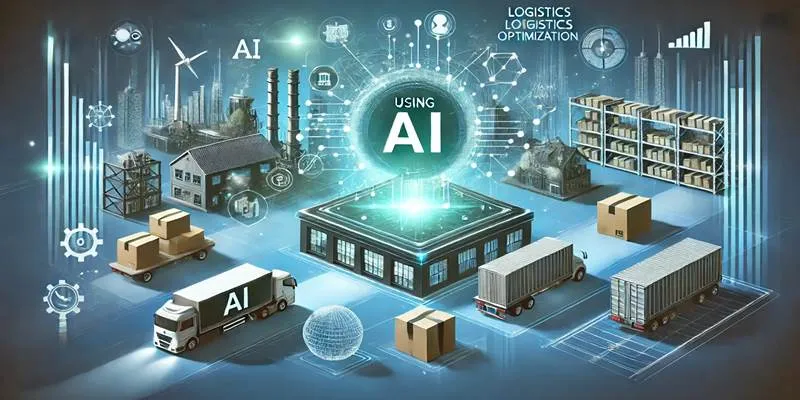As the world evolves, consumer goods businesses must enhance their operations to remain competitive. Efficient business management and strong customer connections are crucial. Recently, consumer goods industries have increasingly adopted conversational AI for customer support, leveraging artificial intelligence to facilitate natural and meaningful interactions between machines and humans. Automation in business fosters customer trust and loyalty while boosting sales. In this article, we’ll explore how integrating conversational AI can benefit your consumer goods industry.

Reasons Behind Rising Consumer Goods Sales
Personalized Customer Engagement
Conversational AI enables personalized customer engagement. By utilizing AI and data analytics, businesses can easily understand customer preferences, behaviors, and needs. This information allows companies to send tailored messages, product recommendations, and offers that align with each customer’s interests. When customers feel understood, they are more likely to remain loyal and engage with the brand repeatedly.
Boost Sales with Targeted Recommendations
AI-powered recommendations have been shown to increase sales. These systems analyze customer data, such as browsing history, past purchases, and preferences, to suggest relevant products. Customers, already considering purchases, find it easier to decide when receiving suggestions that match their tastes, fostering trust and loyalty.
- Cart Abandonment
Cart abandonment is a common challenge for e-commerce businesses. Customers often add items to their shopping carts but leave before completing the purchase, usually due to complicated checkout processes, lack of guidance, or high shipping costs. Conversational AI assists customers by answering their queries promptly. Some businesses even use AI-driven outbound calls to reconnect with customers who left items in their carts, increasing sales and customer loyalty.
Improves Marketing Campaigns
Marketing campaigns are more effective when aligned with customer preferences. Conversational AI analyzes customer data, such as preferences and purchase history, to suggest relevant products. For example, AI-powered tools can send customized emails or push notifications at optimal times, increasing engagement and sales.
Enhances Supply Chain Efficiency
AI can significantly enhance supply chain efficiency by managing logistics, inventory, and operations. AI-powered tools analyze large data sets to optimize inventory management, production planning, and delivery scheduling. Moreover, AI offers greater visibility into supply chains, identifying issues before they become significant problems, allowing businesses to make quick, informed decisions. By automating repetitive tasks, AI saves time and increases efficiency, enabling businesses to develop a flexible, robust supply chain that adapts to market changes.
Predicts Consumer Trends with AI
AI analyzes customer data to predict future trends, helping businesses stay ahead by introducing products that align with customer preferences. AI also fosters deeper personalization, enhancing customer loyalty. By analyzing reviews and social media posts, AI understands customer sentiments, allowing businesses to anticipate customer needs and stand out as industry leaders.

Streamlines Customer Support
AI enhances customer support by making it faster, more efficient, and always available. AI chatbots can quickly answer questions, solve simple problems, and guide customers through complex processes without human intervention. This reduces wait times and ensures consistent assistance, improving customer satisfaction. AI also directs inquiries to the appropriate personnel based on their expertise and workload, increasing productivity and ensuring high- quality service.
Future of Conversational AI in Consumer Goods
The future of conversational AI in consumer goods is full of exciting possibilities. Currently, various bots handle tasks such as product suggestions, processing returns, and answering shipping inquiries. These capabilities reduce the burden on customer support and help customers find solutions to their problems. Another significant opportunity is integrating AI with smart devices, offering benefits such as improved inventory tracking and overall operational efficiency. These AI advancements will continue to grow, helping companies establish themselves as industry leaders.
Conclusion
Incorporating conversational AI in the consumer goods industry is transforming how businesses interact with customers. It provides personalized experiences, suggests the right products, and enhances sales. Conversational AI addresses challenges like cart abandonment and more. Looking ahead, conversational AI will continue to evolve, offering substantial benefits to businesses. Adopting this technology is a wise choice for the consumer goods industry to stay competitive and adapt to market changes.
FAQs
- What is Conversational AI, and how does it work?
Conversational AI is a technology that enables chatbots and voice assistants to communicate like humans. It uses natural language processing (NLP) to understand customer inquiries, analyze questions, and provide quick, accurate responses.
- Can Conversational AI boost sales of consumer goods?
Yes, conversational AI can increase sales by suggesting products based on customer preferences. It simplifies shopping and encourages customers to make additional purchases by recommending related or superior products.
- Is Conversational AI suitable for small businesses in consumer goods?
Yes, conversational AI is affordable and scalable, making it ideal for small businesses. It automates customer support and marketing tasks, saving time and enhancing customer satisfaction.
- What is one way AI improves the customer experience?
AI enhances customer experience by personalizing interactions. It analyzes customer data, such as past purchases and preferences, to provide tailored recommendations and solutions. This helps customers find what they’re looking for faster, increasing satisfaction and strengthening their connection with the brand.
 zfn9
zfn9























